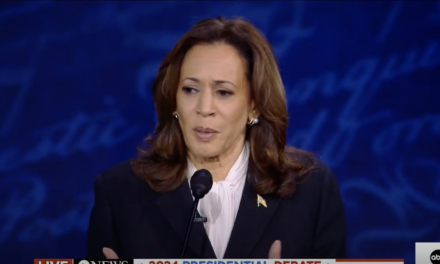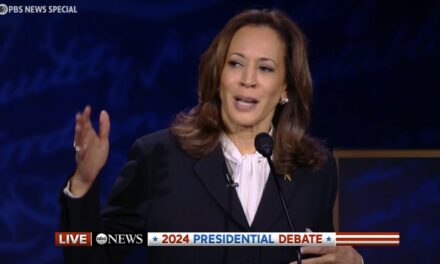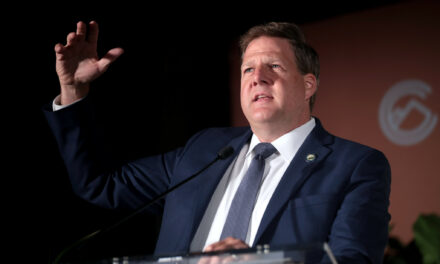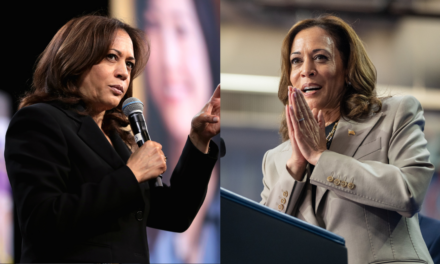We support our Publishers and Content Creators. You can view this story on their website by CLICKING HERE.
No major presidential candidate ever seemed genuinely concerned about health care in any meaningful manner until Marianne Williamson in 2019, when the self-help author went viral on the Democrats’ debate stage for highlighting the epidemic of chronic disease.
“We don’t have a health care system in the United States. We have a sickness care system in the United States,” Williamson said. “We just wait until somebody gets sick, and then we talk about who’s going to pay for the treatment and how they’re going to be treated. What we need to talk about is why so many Americans have unnecessary chronic illnesses, so many more compared to other countries.”
Enter Robert F. Kennedy, Jr. four years later, when the environmental lawyer would go on to tackle the “sick care” system as a primary pillar of his own run for the party’s presidential nomination in a race that again featured Williamson. Both, however, were sidelined by Democrats more eager to find ways to compel taxpayers pay for everybody else’s inflated health care costs blown up by too much “weed” or runaway obesity under the corporate-sponsored banner of “Body Positivity.”
Conservatives, on the other hand, have begun to embrace healthy alternatives to the lucrative “solutions” from pharmaceutical elites who capitalize on decades of blatantly bad diet advice from America’s corrupt medical “experts.” In the Republican primary, tech entrepreneur Vivek Ramaswamy picked up the epidemic of chronic disease to slam Big Pharma as a Wall Street project determined to profit off treatments over cures.
“They’ll pay for anything like feeding tubes, [and] doctors to be pill pushers,” Ramaswamy said, but not for “the procedures that can actually make these patients better.”
The message was answered by a thunderous applause.
Meanwhile in June, it wasn’t a Democrat who proposed legislation in Congress to ban high-fructose corn-syrup and other harmful food additives, but instead it was ex-swimsuit model and Republican Florida Rep. Anna Paulina-Luna.
Kennedy always found a receptive audience in the conservative media ecosystem, or, put more broadly to include carnivore-favorites such as Joe Rogan, a dissident media sphere without allegiance to any party but prone to frequent censorship. In fact, just before he ran for president, Kennedy appeared in Tucker Carlson’s original documentary on plummeting population-wide testosterone levels which featured right-coded health influencers such as the “Raw Egg Nationalist.”
“I spent my career fighting the pharmaceutical industry and the chemical industry and the capture of the agencies that are supposed to regulate those industries and protect the public from environmental injuring,” Kennedy said on Carlson’s program. “It has not been a good career move … It’s lost me a lot of jobs and a lot of friendships.”
And now it’s apparently lost him family too, despite his assassinated uncle launching a presidential fitness initiative immediately upon his election in 1960 to put America back in shape. In the 1960s, when Kennedy’s uncle was president and his father the U.S. attorney general, American health spending was just 5 percent of gross domestic product. By 2021, it was more than 18 percent of GDP. Obesity rates have also tripled since the early 1960s ushered in the industrialization of the food supply and the low-fat diet craze.
Kennedy’s enthusiasm for following through on the health policy started by his uncle provoked opponents in the media to associate him with the “far-right.” In April, for example, the New York Times published a column by Michelle Goldberg who wrote while “there are still some progressive figures in Kennedy’s orbit, his campaign has an increasingly right-wing vibe.” Goldberg referenced Kennedy’s support for border security, his willingness to go on Fox News, and a vice-presidential pick who “was never all that left-wing.” But equally at the heart of Kennedy’s appeal to cross-partisan voters, Goldberg insisted, is an element of esoteric New Ageism focused on “alternative health.”
“Some strains of New Age wellness culture — with its distrust of mainstream expertise, moralistic view of health and weakness for quackery — have long intersected with right-wing politics,” Goldberg wrote. “The connection between alternative medicine and conservatism grew significantly stronger during the pandemic, as the center of gravity in the anti-vaccine movement moved rightward, while longtime right-wingers grew increasingly mistrustful of Big Pharma, and with it, Big Food.”
But Kennedy didn’t embrace the “far-right,” and his convictions on health issues long predated the pandemic and stretch back to a time when conservatives dismissed these concerns as an obsession of left-wing hippies. To the contrary, Kennedy’s leftist convictions on myriad other issues give conservatives every reason to be skeptical of a Kennedy-run administration. Kennedy just centered his campaign around a narrower set of issues the current incarnation of the American right cares about. This includes the destruction of the “Censorship Industrial Complex,” the prevention of World War III in Ukraine, and the reinvigoration of personal health as fundamental to American prosperity. And it’s worth noting that not long ago, fighting censorship and ending wars would have been issues proudly claimed by the left.
The left’s politicization of health and fitness, meanwhile, drove would-be leftist voters into a dissident ecosystem receptive to Kennedy’s messaging on all three issues as Democrats embrace the Wall Street mantra of “health at every size” and a new brand of deflated masculinity. So, it should be no surprise, then, that Kennedy, who had been running a testosterone-fueled campaign which featured push-up videos and interviews with Rogan and Lex Friedman, would endorse Trump, whose own campaign has included frequent appearances at UFC fights and a appearance by Hulk Hogan at July’s convention.
Health appears to be the primary policy arena Kennedy hopes to influence within a potential next Trump administration as “chronic disease czar.” On censorship and Ukraine, former President Donald Trump and Kennedy are on the same page. But on health and hygiene, Kennedy probably wouldn’t eat a single item on the table at Trump’s last inflation press conference from Bedminster, New Jersey, full of processed cereals and seed oils. In fact, Kennedy slammed seed oils as primary culprits driving America’s epidemic of chronic disease.
“We are mass poisoning all of our children and our adults,” Kennedy said, condemning foods designed by “laboratory scientists” who “worked for the cigarette industry which purchased all the big food companies in the 1970s and 80s.”
Kennedy understands that while the cost of food is too high, the quality remains too low, and it’s driving up health care costs for everyone. Trump would be wise to take the page from the Kennedy playbook after the endorsement capped off the Democrats’ “sugar high” from the DNC in Chicago. Even more so, Melania Trump ought to adopt Kennedy’s platform to pick up where Michelle Obama left off. Obama failed to meaningfully take on childhood obesity because her husband’s administration was too afraid to make enemies of the food industry. Trump’s, however, wouldn’t be, having shown he is far less afraid to take on established interests like Big Pharma. But both administrations would at least agree childhood obesity is the silent crisis requiring bipartisan cooperation, even if Republicans initially balked when faced with First Lay Obama’s finger-waving. Here’s what Trump’s own nominee for vice president, J.D. Vance, wrote on the issue in his 2016 memoir Hillbilly Elegy, (emphasis ours):
Barack Obama strikes at the heart of our deepest insecurities. He is a good father while many of us aren’t. He wears suits to his job while we wear overalls, if we’re lucky enough to have a job at all. His wife tells us that we shouldn’t be feeding our children certain foods, and we hate her for it—not because we think she’s wrong but because we know she’s right.
Trump, Vance, and Kennedy agree that taking on Wall Street fat cats to save the children is a fundamentally American issue, not a partisan exercise.

 Conservative
Conservative  Search
Search Trending
Trending Current News
Current News 





